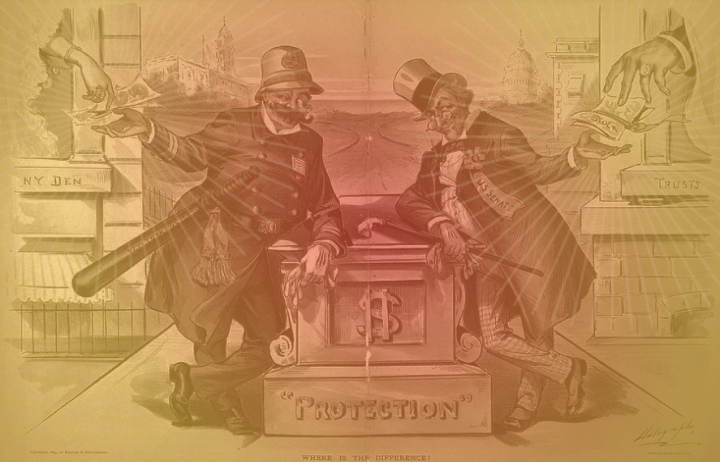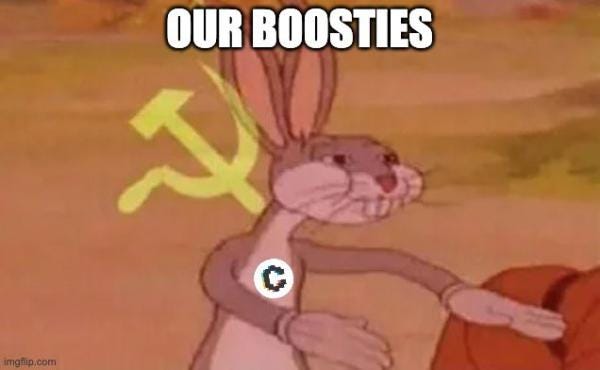Is Bribery Inevitable ?

Romain Figuereo
Founding Knight
Post Date September 01, 2021
There is no ultimate governance system. Every community, protocol, corporation, and administration has different organisational needs which depend on their context, complexity, culture and challenges.
At Paladin we’re in the game of democratizing economic activism. As part of this mission we have to face governance taboos in order to seriously tackle voter apathy and uncover frictions in participation.

Adding monetization (ie : pay to access) to finance a governance project is an unnecessary friction that would reduce potential voter turnout.
With this in mind we are releasing Paladin Lending next month as our first foray into governance and cryptonetwork influence.
Our long term vision is to enable liquid governance, establish vote buying on-chain and create opportunities for users to transition into healthy activism. And all of this on-chain for maximum transparency.
The first step though is to shed light on this murky thing we call bribery. Let’s dive in !
Crypto-Bribery
Is accepting money in exchange for your vote a bribe ? Conventional wisdom says yes.
What about being airdropped part of the supply of a new protocol in exchange for whitelisting them ? Convex adopted this strategy in April with very little backlash.

Let’s be honest, Convex is brilliant
What about directly incentivizing a voting decision ? (Trailblazed live by Andre Cronje which was controversially received but has been generating around 500,000$ of volume per week on a lite version).
At first glance, bribes seem to be defined by social consensus. In reality they are legally defined as “the offering, giving, receiving, or soliciting of something of value for the purpose of influencing the action of an official in the discharge of his or her public or legal duties”.
With this in mind the question is then, do tokenholders have a duty to vote or honor their vote? Legally, no. Technically, not yet ? Morally ?
If there is one thing we can all agree on, it’s that these behaviours are unhealthy for the long term sustainability of a governance system. They create a lack of faith in the voting process and create Governance Extractible Value opportunities.
How do we deal with it ?
Normally, bribery is detected when there’s a violation of a compliance process. In crypto, where accountability and identification are optional, compliance is unenforceable.
This means we have to accept that there are conflicts of interest, and scenarios of potential bribing.
Faced with this reality we decided to bring these behaviours on-chain while limiting potential attack vectors.
Our first guardrail has been to recognize protocol rules : Paladin respects the snapshots for each proposal, it is impossible to swing a vote without open and transparent (on chain) preparation beforehand. It will also offer communities the ability to modify the parameters of their pools.
The second way of restricting attack vectors is to reduce potential extractible value by correlating interest rates with quorum & proposal thresholds (this will be expanded upon during our Community Call #1 on the 13th of September).
A third way is to create accountability for governance stakeholders, a topic we’ll delve into another time.
But accepting the reality of bribes is just the beginning.
Creating a smooth transition from “bribery” to activism
People bribe in order to hasten / hide their agenda or bypass oversight completely.
Bribes can be viewed as frictionless solutions in a jumbled world of coordination. For example, in a different framing, Andre’s Bribe.crv can be seen as a retroactive liquidity mining campaign. While circumventing norms will always be frowned upon, we truly believe the greater danger is governance inactivity, especially when it’s weighed down by process overload and inefficiency (in solicitation, campaigning, voter apathy).
Paladin Lending is our first stab at this major flaw inherent to governance generally (and not just coin voting). If we’re right, Paladin Lending will become an influence vortex where we’ll be able to identify users who don’t care about governance on the one side, while interacting with frustrated activists on the other.
From then on we’ll be able to roll out a customized set of tooling for delegates and activists allowing for more clarity on influence dynamics in a protocol, conflict of interests, a rating platform and more… (we can’t alpha leak everything in a blog post).
Expect our full vision by the end of year. In the meantime, join us, fight us, whichever, as long as you’re active. In the end it’ll be the only thing that matters.